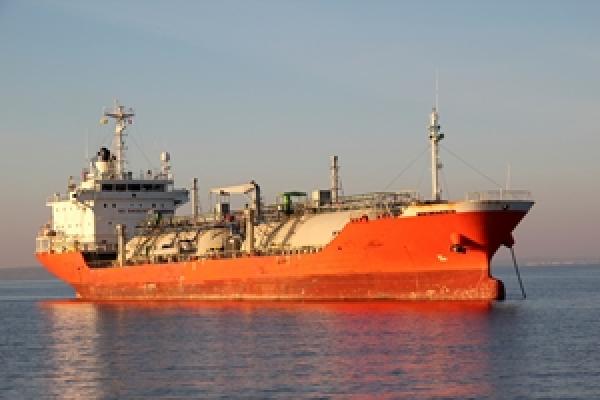
Sophie Cordonnier
Published: February 13, 2025
Introduction
It is a time charterer’s absolute obligation to pay hire continuously and without deduction from the time of a vessel’s delivery until the time of her redelivery, unless exempted from this obligation by a clear contractual (or common law1) entitlement to withhold hire (“off-hire” clauses).
The rationale of off-hire clauses was set out in The Mareva A.S.2 as follows: “The owners provide the ship and the crew to work her. So long as these are fully efficient and able to render to the charterers the service then required, hire is payable continuously. But if the ship is for any reason not in full working order to render the service then required from her, and the charterers suffer loss of time in consequence, then hire is not payable for the time so lost.”
What is Off-hire: General Principles
Per Staughton, L.J. in The Berge Sund3, “[t]he only general rule that can be laid down is that one must consider the wording of the off-hire clause in every case”. Nonetheless, the following key principles can be noted.
No off-hire unless clearly stipulated. There must be a clear provision in the charter allowing Charterers to place the vessel off-hire4 and the onus is on Charterers to show that the off-hire clause operated in the relevant circumstances5. Charterers’ failure to do so runs the risk that Owners will avail themselves of the various remedies available to them, including a possible withdrawal of the vessel from Charterers’ service.
Strict construction. As off-hire clauses are considered to be exceptions clauses in contract law, they are always strictly construed against the party seeking to rely on them, namely Charterers6. Where a charter expressly specifies the causes which put the vessel off-hire, no other cause can be relied upon.
No breach required. Absent any specific amendment to the standard clauses, there is no need for Charterers to establish that any delay was caused by Owners’ “fault” or that Owners were in breach of contract7. Many off-hire events, such as a wholly fortuitous and unforeseeable engine breakdown or an unavoidable collision leading to damage to the vessel and loss of time through repairs, are not necessarily a breach of charter, but still place the vessel off-hire.
Off-hire event must be fortuitous. An event which is the natural result of compliance with Charterers’ orders (such as, in certain circumstances, hull fouling) does not give rise to off-hire.
No off-hire if event caused by Charterers’ own breach/default. Charterers are not entitled to rely on an off-hire clause where the loss of time has been brought about by their own breach of charter9 (e.g. breach of Charterers’ obligations to load only lawful merchandise, to carry out proper stowage, to supply an appropriate quantity of fuel, not to hinder performance of the charter by Owners etc.). In practical terms, if the off-hire event is caused by Charterers’ breach or default, either the vessel is simply not off-hire, or Owners can bring a counterclaim against Charterers for breach of charter equivalent to any resulting deduction of hire
In what circumstances will the Vessel be Off-Hire?
The circumstances in which a vessel will be off-hire and the duration of any off-hire period will vary depending on the wording of the specific clause but there are three requirements that Charterers must establish for the operation of most off-hire clauses:
- There must be an interruption or reduction in the working of the vessel or the performance of the chartered service. This requirement may be expressed in different ways such as “preventing the [full] working of the vessel” or “preventing the efficient working of the vessel” or “hindering or preventing the working of the vessel”.
- The prevention or hindrance of working must have been caused by one of the named off-hire events or by “any other cause”.
- A loss of time must have been suffered as a result.
Was the full/efficient working of the vessel prevented/hindered?
Preventing the full working of the ship
If the relevant off-hire clause requires the full working of the vessel to have been prevented (e.g. Clause 15 of NYPE 1946 and Clause 17 of the 1993 and 2015 revisions), the working of a vessel may still be prevented even if she remains partially efficient. In other words, the NYPE off-hire clause applies not only to a total interruption of service but also, in appropriate cases, to a reduction of service10. An example would be where there has been a partial reduction of service due to a breakdown of one of the vessel’s cranes.
Where the cargo carrying voyage is delayed because of an external physical impediment or obstacle to navigation11, it is considered that the vessel remains fully functional within itself despite the impediment and is not off-hire. See Steamship Mutual - External events, delay and who pays. By contrast, where the impediment delaying or detaining the vessel is not external but relates to the specific ship (for example seizure by pirates12, actions of port authorities13 or arrest14), such impediment can be treated as an event which prevents the full working of that particular vessel, even if (aside from the specific impediment) the vessel is not of itself inefficient.
Preventing the efficient working of the ship
The off-hire provisions in Shelltime 3 and Shelltime 4 provide for hire to cease in the event of a loss of time due to a number of specified events, some but not all of which are qualified by a requirement that they prevent the efficient working of the vessel. In this instance, it is considered that such provisions only apply to the physical condition of the vessel15 and a vessel is not efficient for the service required unless she is fully efficient for that service: partial efficiency is not good enough. Conversely, providing the vessel is fully efficient to perform the service then required it does not matter that she may not be fully efficient to perform some other service. In other words, she will not necessarily be off-hire simply because she is not fully efficient in all respects.
Hindering or preventing the working of the vessel
The Baltime form similarly refers to causes either hindering or preventing the working of the Vessel and continuing for more than twenty-four consecutive hours. As above, partial efficiency will not be sufficient to keep the vessel on hire.
Next service required
Charterers must prove that the vessel was prevented (or hindered) from performing the next operation that the charter service actually required of her, which is a matter of fact. A ship is not off-hire when she is carrying out an operation required by Charterers (such as tank/hold cleaning, bunkering, ballasting or lightening) even where Charterers would have preferred, from a commercial perspective, another service to be undertaken (such as loading the next intended cargo)16.
Is the cause of the prevention/hindrance a named off-hire event?
If it is established that the working of the vessel has been prevented or hindered in accordance with the principles discussed above, the vessel is not off-hire unless Charterers establish that the cause of the prevention or hindrance is covered by one of the off-hire events specified by the relevant off-hire clause(s). Where there is a combination of causes, it is necessary to determine the true underlying cause. The following are some of the causes most commonly identified as off-hire events:
- Deficiency of men. This wording refers to any numerical insufficiency of officers and crew and not any other type of deficiency. It is generally understood that the added word “default” (e.g. NYPE 1993) would cover circumstances in which the ship’s crew refuse to perform their duties or deliberately withhold their services.
- Breakdown or damages to hull, machinery or equipment. The word “breakdown” covers defects which, when discovered, would render it necessary in the opinion of a prudent operator that she should proceed to a harbour for repairs17. Any “damage” (e.g. hull fouling) will not constitute an off-hire event if it resulted from Charterers’ use of the ship18.
- Detention by average accidents to ship or cargo. “Average accidents” is generally taken to mean (fortuitous) accidents which cause damage. The word “detention” means that there must be “some physical or geographical constraint upon the vessel’s movements in relation to her service under the charter” . As such, damage to cargo which causes discharging operations to be delayed will not qualify as a “detention”.
- Detention by the arrest of the vessel. Sub-charterers, shippers, consignees are generally deemed to be Charterers’ agents and any arrest by these parties will not render the ship off-hire . See Steamship Mutual – The Global Santosh – Acts of Delegates and Off-Hire.
- Any other cause. By application of the ejusdem generis rule, any event claimed as an off-hire event under “any other cause” must be of the same type as the previously enumerated events21. The causes covered include legal action or administrative acts by a port or other lawful authority (acting properly and reasonably) relating to the physical condition or efficiency of the ship or crew, but do not extend to extraneous causes which are unrelated to the physical condition or efficiency of the vessel (such as seizure by pirates22).
- Any other cause whatsoever. The relevant causes do not have to be the same kind as those specifically mentioned in the earlier part of the clause. Any cause in principle suffices to put the vessel off-hire, whether external or internal and whether creating a physical or legal incapacity23 if they caused the loss of time and prevented the full working of the ship.
Was there a loss of time?
Off-hire clauses, which almost invariably require the off-hire event to have resulted in a loss of time, are often categorised as either period off-hire clauses or net loss of time clauses.
A period off-hire clause causes hire to cease between the occurrence of two specified events without regard to the fact that the vessel may have been able to work to some extent during this period or that no time was actually lost. Once the off-hire event ceases to interrupt or delay the performance of the chartered service, the off-hire period immediately comes to an end24. Typically, such clauses use the phrase “… hire shall cease until the vessel is again in an efficient state to resume its service” or “… no hire shall be payable until the vessel is ready and in an efficient state to resume service from a position no less favourable to Charterers than that at which [the off-hire event] began”.
By contrast, a net loss of time clause looks only to the net effect of the inefficiency on Charterers and requires a (sometimes complex) calculation of the time actually lost due to the interruption or delay in the performance of the service required of the vessel caused by the off-hire event. Even so, no loss of time can be taken into account after the vessel is once again able to perform the service immediately required of her. Further, when calculating the net loss of time, it is irrelevant that the same amount of time might have been lost in any event for other reasons and that there was no delay to the chartered service overall25. Typically, net loss of time clauses use the phrase “hire shall cease for the time thereby lost”.
What is the effect of the Vessel being Off-Hire?
Charterers’ other obligations during off-hire
The mere fact that the vessel is off-hire does not necessarily mean that the other obligations of Charterers during such periods also cease, including for example those obligations under Clause 2 of NYPE 1946 to pay for port charges, pilotages, agencies, commissions, consular charges and “all other usual expenses” during the off-hire period, unless the charter expressly provides that Charterers’ obligations in respect of all such expenditure only subsists “whilst on hire”.
Charterers’ right to make deductions from hire
Deductions from advance hire are not permitted in respect of anticipated periods of off-hire26, however certain it appears that the vessel will be off-hire. By contrast, if advance hire proves to have been paid in respect of a period during which the vessel has been off-hire, Charterers have a right to be paid an adjustment of hire which has been overpaid, normally by way of deduction from a subsequent hire instalment. In the absence of an express contractual provision (e.g. “no hire to be paid in respect of any time lost thereby”), such a right will be implied27.
If Charterers are entitled to be paid an adjustment of hire and they choose to deduct a sum that has not yet been either determined or agreed, the prevailing view is that any withheld sum must be quantified by a reasonable assessment made in good faith28.
Where a charter provides that no deductions from hire can be made without the consent of Owners, non-payment of hire constitutes a "deduction" if the vessel is allegedly off-hire at the instalment date, thereby precluding Charterers from making unilateral deductions29. See Steamship Mutual - "Pay now, argue later". The fact that Charterers believe, bona fide and reasonably, that they have a right of deduction will not prevent Owners from exercising their right of withdrawal for non-payment of hire.
Other remedies available to Charterers
Off-hire clauses do not necessarily exhaust Charterers’ remedies in respect of the events which bring the clause into operation. If the off-hire event is occasioned by a breach by Owners of their obligations under the charter, Charterers may (depending on the construction of the clause) also have remedies such as the right to terminate the charter or claim damages in addition to the ship being off-hire if they can prove that they have suffered losses over and above the loss of time30. These may include additional loss of time (e.g. the ship missing a tide or berthing slot) or the loss of a subsequent fixture. The recoverability of damages will be subject to the usual contract law principles, namely causation, remoteness and mitigation.
What are Owners’ remedies for non-payment of Hire?
Subject to the precise terms of the charter and the impact of any anti-technicality clauses, Owners are generally entitled to withdraw the vessel from Charterers’ service (or possibly suspend performance) if hire is not paid in accordance with the requirements of the charter, i.e. if there is a late payment and/or an underpayment of hire.
Conclusion
This guide illustrates the fact that issues surrounding off-hire disputes are often complex and will depend in each case on the precise wording of the charter. Charterers should take great care before making unilateral deductions from hire as the consequences of wrongfully withholding hire can be draconian. Similarly, caution should also be exercised by Owners, since Charterers may be entitled to bring a significant claim for repudiatory breach if the charter service is wrongfully suspended or the vessel wrongfully withdrawn by Owners.
Whilst this guide provides a practical overview of the principles underpinning off-hire clauses, it is important to highlight that it is not a substitute for legal advice, and Members of the Club are encouraged to approach their usual contacts at the Club for assistance before taking substantive action.
Related Articles
Articles
External events, delay and who pays
A number of issues can arise for shipowners and charterers when faced with a loss of time caused by external events outside their control. For example, the closure of a waterway that prevents a vessel from leaving or entering a port, or causes delays during the vessel’s voyage.
Articles
Articles
"Pay now, argue later"
The English High Court considers hire anti-deduction clauses
In Fastfreight Pte Ltd v Bulk Trident Shipping Ltd (The Anna Dorothea) [2023] EWHC 105 (Comm) the Commercial Court considered an appeal under section 69 of the Arbitration Act 1996 of a partial final award in which the Tribunal awarded Owners’ claim for unpaid hire under a time charter.
Articles
1 Via the exercise of the equitable right of set-off which is beyond the scope of this publication.
2 Mareva Navigation Co Ltd v Canaria Armadora SA [1977] 1 Lloyd’s Rep. 368 at 381.
3 Sig Bergesen DY & Co v Mobil Shipping and Transportation Co [1993] 2 Lloyd’s Rep. 453 at 459.
4 Havelock v Geddes (1809) 10 East. 555; Ripley v Scaife (1826) 5 B.& C. 167; Moorsom v Greaves (1811) 2 Camp. 627; Giertsen v George Turnbull (1908) S.C. 1101 at 1111; The Roberta (1937) 58 Ll.L.R. 231 at 235.
5 The Doric Pride [2006] 2 Lloyd’s Rep. 175 (C.A.).
6 Vogemann v Zanzibar Steamship Co Ltd (1901) 6 Com. Cas. 253 at 254; (1902) 7 Com. Cas. 254; The Ilissos [1949] 1 K.B. 525 at 529; The Berge Sund [1993] 2 Lloyd’s Rep. 453 at 459, 462; The Captain Stephanos [2012] EWHC 571 (Comm); [2012] 2 Lloyd’s Rep. 46 at [7].
7 Per Staughton, J., in The Ioanna [1985] 2 Lloyd’s Rep. 164, at page 167: “Off-hire events are not necessarily a breach of contract at all. So one should not be too surprised if one finds that [the off-hire clause] leads to a different answer than would ensue in the case of a claim for damages for breach of contract.”
8 The Rijn [1981] 2 Lloyd’s Rep. 267.
9 Board of Trade v Temperley (1927) 27 Ll.L Rep. 230.
10 The Pearl C [2012] EWHC 2595 (Comm).
11 Per Rix, J., in The Laconian Confidence [1997] 1 Lloyd’s Rep. 139, at page 147: “A vessel is not off hire just because she cannot proceed upon her voyage because of some physical impediment, like a sand bar, or insufficiency of water, blocking her path”.
12 The Saldanha [2011] 1 Lloyd’s Rep. 187.
13 The Laconian Confidence, ibid, at page 150.
14 The Mastro Giorgis [1983] 2 Lloyd’s Rep. 66.
15 The Manhattan Prince [1985] 1 Lloyd’s Rep. 140.
16 Per Staughton, L.J., in The Berge Sund [1993], ibid, at page 460: “The question is not what the charterers hoped or expected their orders would be, but what service they actually required”.
17 Giertsen v. Turnbull, 1908 S.C. 1101.
18 The Rijn, ibid.
19 The Mareva A.S. [1977] 1 Lloyd’s Rep. 368.
20 The Global Santosh [2016] UKSC 20.
21 The Laconian Confidence, ibid.
22 The Saldanha, ibid.
23 The Mastro Giorgis, ibid.
24 Smailes v. Evans [1917] 2 K.B. 54.
25 The Athena [2013] EWCA Civ 1723; [2013] 2 Lloyd’s Rep. 673.
26 The Li Hai [2005] 2 Lloyd’s Rep. 389.
27 The Trident Beauty [1994] 1 Lloyd’s Rep. 365 (H.L.), at page 367.
28 As expressed by Kerr J., in The Nanfri [1978] 1 Lloyd’s Rep. 581 and [1978] 2 Lloyd’s Rep. 132 (C.A.).
29 The Anna Dorothea [2023] EWHC 105 (Comm).
30 The Democritos [1975] 1 Lloyd’s Rep. 386.





